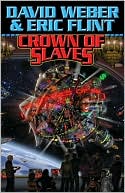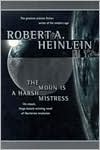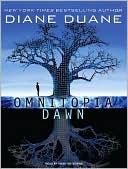You still have a few hours left to enter my 4th Annual Blogo-Birthday Celebration Giveaway. I’m giving away four(4!) $10 gift cards or books, so that’s four chances to win. But time is running out!
The big piece of bookish news this week has been the continuing fracas over the nominee slate for this year’s Hugo Awards. If you are looking for balanced coverage of the mess, take a look at either George R.R. Martin’s Not a Blog entries or File 770’s posts. I am planning to attend WorldCon this year in Spokane, which means that yes, I was eligible to nominate. I’m glad that I did this year, even though very few of my nominations made it to the final ballot. I am definitely planning to vote. I think I’ve figured out what I’m going to do, but there are lots of thoughts still running around my head. This has been a big topic of discussion around our house this week. While it certainly makes the evening walks go faster, it is also an exhausting piece of chaos, and there are not going to be any winners at the end, possibly including whoever takes home the actual Hugo rockets. If anyone does.
I thought seriously about writing a blog post on this mess, but I have decided not to. What I wrote for my own amusement was cathartic but probably not helpful to anyone except me.
Besides, I believe that Robert A. Heinlein, who seems to be the patron saint of the Puppies, said it best in The Notebooks of Lazarus Long:
If you are part of a society that votes, then do so. There may be no candidates and no measures you want to vote for…but there are certain to be ones you want to vote against. In case of doubt, vote against. By this rule you will rarely go wrong. If this is too blind for your taste, consult some well-meaning fool (there is always one around) and ask his advice. Then vote the other way. This enables you to be a good citizen (if such is your wish) without spending the enormous amount of time on it that truly intelligent exercise of franchise requires.
In the meantime, here is what’s happening on Reading Reality…
 Current Giveaways:
Current Giveaways:
Four $10 gift cards or books in my 4th Annual Blogo-Birthday Celebration!
Winner Announcements:
The winner of the $10 bookish prize in the Fool for Books Giveaway Hop is Danielle S.
The winner of a paperback copy of Never Too Late by Robyn Carr is Natasha D.
 Blog Recap:
Blog Recap:
4th Annual Blogo-Birthday Celebration + Giveaway
B+ Review: Wildfire at Larch Creek by M.L. Buchman
B+ Review: The Fifth Heart by Dan Simmons
C Review: Bite Me, Your Grace by Brooklyn Ann
A- Review: Doc by Mary Doria Russell
Stacking the Shelves (130)
 Coming Next Week:
Coming Next Week:
The Dream Lover by Elizabeth Berg (blog tour review)
The Bookseller by Cynthia Swanson (blog tour review)
One Bite Per Night by Brooklyn Ann (review)
BiblioTech by John Palfrey (review)
Ivory Ghosts by Caitlin O’Connell (blog tour review)







